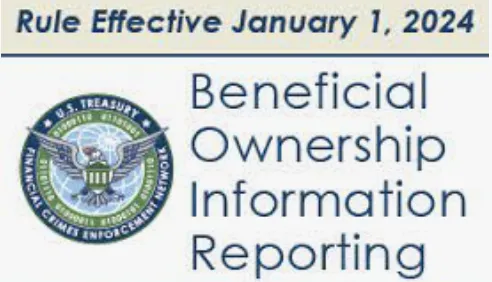Introduction to Filing Form 8858 for a Disregarded Entities and Foreign Branches
Certain U.S. persons use IRS Form 8858, Information Return of U.S. Persons With Respect to Foreign Disregarded Entities (FDEs) and Foreign Branches (FBs), to report ownership of a foreign disregarded entity and foreign branch while providing the IRS with financial information about the foreign companies. Each year, on the same day as the taxpayer’s annual income tax, including extensions, owners of FDEs and FBs must submit Form 8858 with their U.S. tax returns.
Key Takeaways
- Owners of a foreign disregarded entity and foreign branch must file Form 8858, an information return.
- Form 8858 reports ownership of FDEs and FBs and provides the IRS with financial information about certain foreign companies.
- Form 8858 is filed with the FDE or FB’s owner’s annual income tax return and is due on the same date, including an extension.
- Failure to file this return and provide timely and accurate information will result in heavy penalties.
- Form 8858 can be filed electronically or by mail.
What is a Foreign Disregarded Entity?
An FDE is a business entity formed outside of the United States. For tax purposes, the IRS classifies an FDE as a “disregarded entity,” treating it and its owner as a single taxpayer. This means that the IRS regards the income earned by the FDE as taxable income for an individual. Your taxable income is, therefore, the total of your income and the income of the foreign disregarded entity.
Foreign companies, such as single-member limited liability companies (SMLLCs), sole proprietorships, and partnerships that are not taxed as corporations, are likely to qualify as FDEs.
What is Form 8858?
Form 8858 is an information return that owners of a foreign disregarded entity and foreign branch must file annually with their U.S. tax returns. Form 8858 is used to disclose ownership of a foreign disregarded entity and foreign branch. It provides the IRS with financial information about the foreign company. The form and schedules are used to meet the reporting requirements outlined in Sections 6011, 6012, 6031, and 6038, as well as related regulations.
Who Must File Form 8858, and Why Is It Important?
U.S. persons that operate a foreign branch, own a foreign disregarded entity, or have specified interests in tax owners of FBs or FDEs must file Form 8858.
There are six (6) categories for Form 8858 filers:
Category 1 Filer. U.S. persons who own or operate a foreign disregarded entity or foreign branch at any time during their tax year or annual accounting period.
Category 2 Filer. U.S. persons who are directly (or indirectly through a tier of FDEs) the tax owners of a foreign disregarded entity or the operator of a foreign branch.
Category 3 Filer. Certain U.S. persons that are required to file Form 5471 at any point during the CFC’s annual accounting period with respect to a CFC that runs a foreign branch or is the tax owner of a foreign disregarded entity.
Category 4 Filer. Certain U.S. persons that are required to file Form 8865 with respect to a CFP that is the tax owner of an FDE or manages an FB at any time during the CFP’s annual accounting period.
Category 5 Filer. U.S. persons that are partners in a partnership that owns an FDE or operates an FB and apply Section 987 to the activities of the FDE or FB using a method that requires the partners, rather than the partnership, to recognize Section 987 gain or loss with respect to the FDE or FB.
Category 6 Filer. A U.S. corporation (other than an RIC, an REIT, or an S corporation) that is a partner in a U.S. partnership, which checked box 11 (Dual Consolidated Loss) on Schedules K-2 and K-3 (Form 1065).
Form 8858 is essential as it reports information about FDES and FBs in which a U.S. person has an ownership interest. The form ensures compliance with U.S. tax laws and regulations governing foreign investments and the reporting requirements of U.S. persons. Failure to file Form 8858 when required can result in penalties and other legal consequences.
When is Form 8858 Due?
Form 8858 must be filed on the same date as the taxpayer’s annual income tax return, including any extension. For U.S. citizens and residents, the filing deadline is April 15 or the 15th of the fourth month following the end of your fiscal year. To request an extension, file Form 4868, Application for Automatic Extension of Time To File U.S. Individual Income Tax Return, by the original due date.
For calendar-year corporations, the deadline is April 15; for fiscal-year filers, it is the fifteenth day of the fourth month following the end of the fiscal year. To request an extension, you must submit Form 7004, Application for an Automatic Extension of Time, by the original deadline.
Should the due date fall on a Saturday, Sunday, or legal holiday, you may file the following business day.
Where Can I Find the Latest Version of Form 8858?
The IRS website is available 24 hours a day, seven days a week, to download forms, order IRS products online, and conduct research. It contains the most recent version of Form 8858 and instructions. Check back frequently because the forms are periodically updated, and the filing rules may change.
What Are the Penalties for Filing Form 8858 and Schedule M/Form 8858 Late or Incorrectly?
You are subject to a $10,000 penalty for each year in which you fail to report the required information for each controlled foreign corporation (CFC) or controlled foreign partnership (CFP) by the due date. If you do not file within 90 days of receiving notice from the IRS, you will face an additional $10,000 penalty for each 30-day period, or a fraction thereof, in which the failure persists after the 90-day period has ended. The additional penalty is limited to $50,000 for each failure. In some cases, criminal penalties will apply.
If you fail to file or report all required information on time, you may face a 10% reduction in the foreign taxes you can claim as a credit under Sections 901 and 960. If the failure continues for a period of 90 days or longer after the IRS sends a notice of the failure to the U.S. person, an extra 5% reduction is imposed for every 3-month period, or part thereof, during which the failure persists after the 90-day period expires.
Note that if taxpayers agree to have another person file Form 8858 and Schedule M (Form 8858) on their behalf, they could still be liable for the penalties listed above if the correct forms and schedules are not filed.
What Information is Required to Complete Form 8858?
The first page of the form is for Identifying Information. In this area, you must provide key information about the foreign disregarded entity or foreign branch, including the following:
- Name and address of the person filing the return.
- Name and address of the FDE and FB with their respective employer identification number (EIN).
- Filer’s tax year.
- Country where the FDE or FB is incorporated.
- The functional currency of the FDE or FB.
- Direct and tax owner of the FDE or FB: If the person filing Form 8858 isn’t the FDE’s owner, its owner(s) must include their personal information. The direct owner is the person who’s the legal owner of the FDE and is responsible for the management and the FDE’s legal obligations.
All applicable schedules must be filled out with timely information, and all supporting documents must be kept for audit purposes. Some of the schedules that need to be completed are the following:
- Schedule C (Form 8858): Reports the summary income statement of the foreign disregarded entity or foreign branch
- Schedule C-1 (Form 8858): Reports gains or losses from foreign currency exchange (Section 987)
- Schedule F (Form 8858): Reports the summary balance sheet of the FDE of FB
- Schedule G (Form 8858): Other information, including gross receipts derived from sales of intangible property to the foreign corporation, that the filer included in its computation of FDDEI and whether the foreign corporation owns or has an interest in any foreign partnership, trust, or other disregarded entities.
- Schedule H6 (Form 8858): The FDE or FB’s earnings and profits in its functional currency.
- Schedule I (Form 8858): Only required if a US corporation owns the FDE.
- Schedule J8 (Form 8858): Foreign tax credit
Can Cleer Tax Help Me File Form 8858?
YES! Cleer Tax provides flat-rate federal income tax preparation corporations with all the informational returns. We not only ensure that your return undergoes due diligence, but we also guarantee the accuracy of our work.
We also offer all-inclusive bookkeeping packages, which include your monthly statements plus your federal and state tax returns. If you need help getting up to date on your books, we also offer support for companies that have fallen behind on their bookkeeping with our bookkeeping catch-up package.
If you need any help reducing your tax liability, schedule a consultation, or feel free to contact us.






